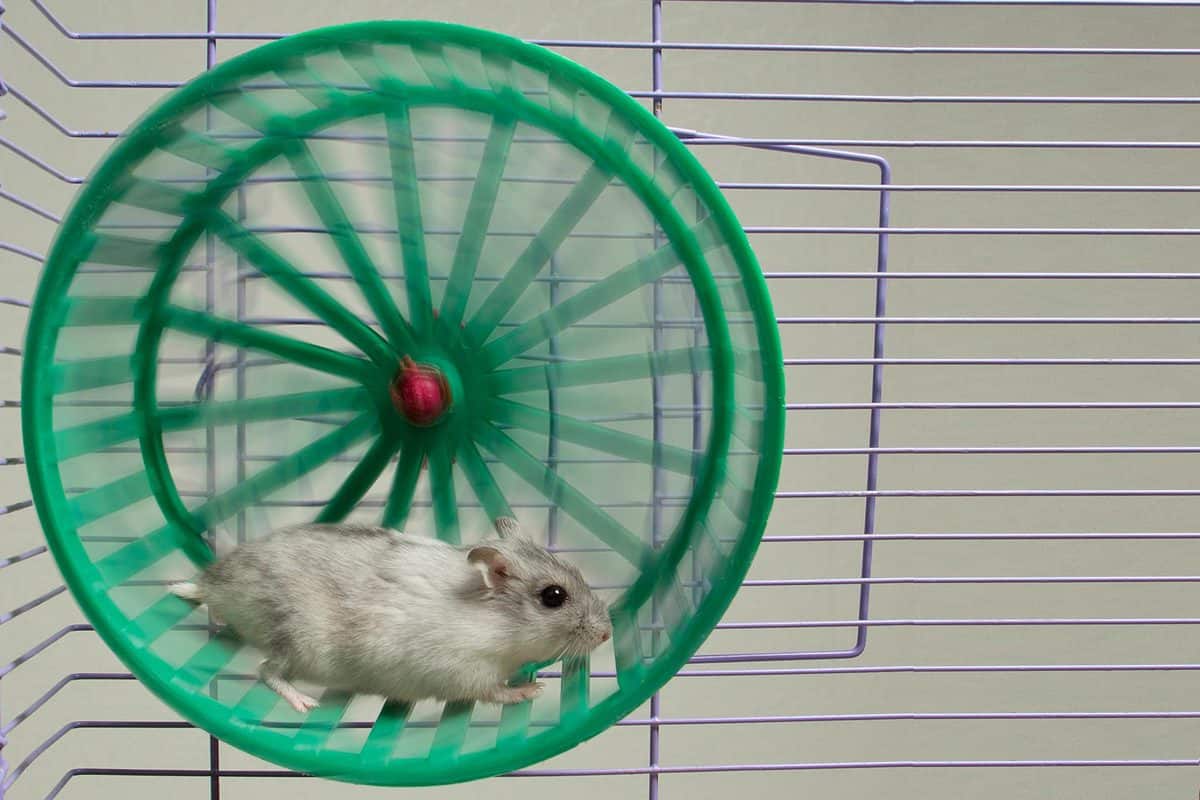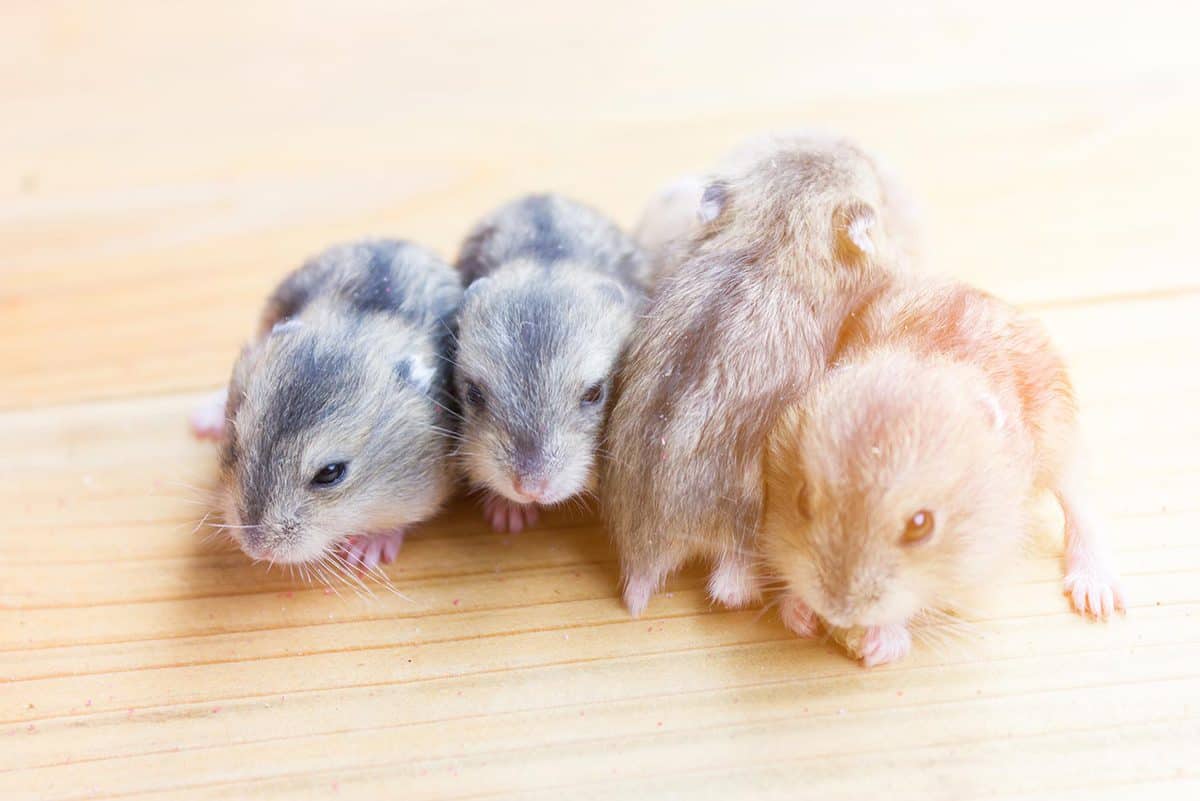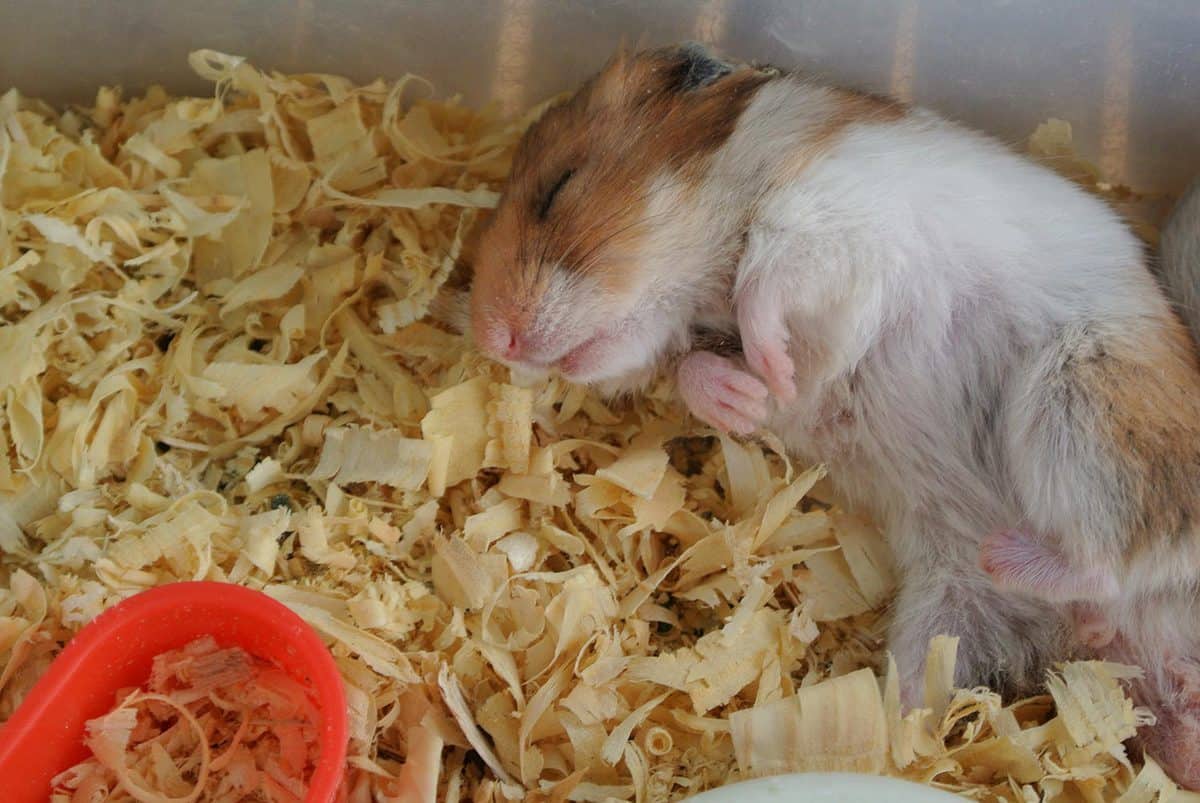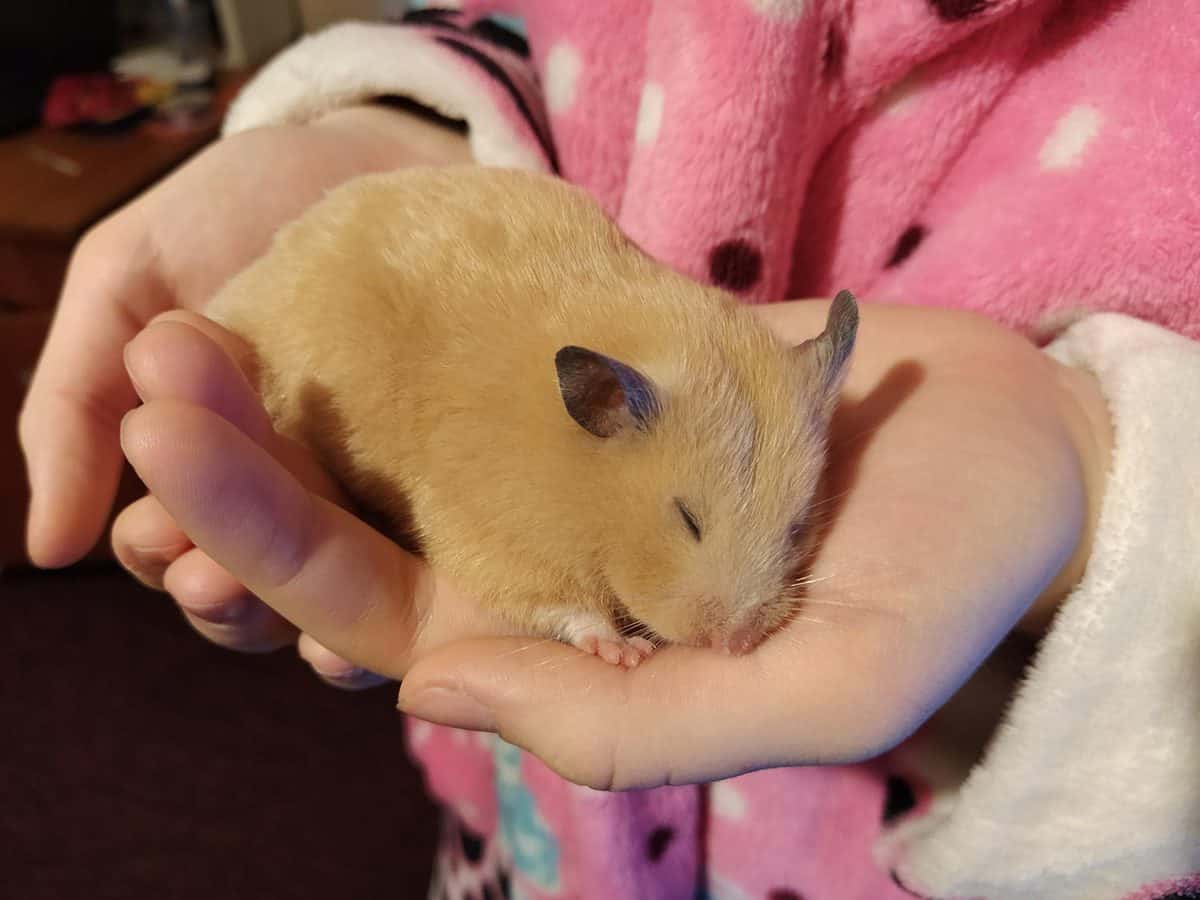Many people enjoy having pet hamsters. When you get a hamster, you might want to know when your pet will be awake to play. People commonly assume hamsters are nocturnal; however, this isn't necessarily true. Luckily we have researched when your hamster will be awake to play.
Hamsters are active when the sun is down or right before the sun comes up, and their most active times are around dawn and dusk. Individual hamsters will have different preferred wake-up times and sleep schedules depending on their breed and personal needs.
Now that you know when your hamster might be awake, continue reading to learn more about hamsters' wake and sleep cycles. We will discuss why hamsters aren't nocturnal and if it is normal for your hamster to be active during the day.

What Time Do Hamsters Typically Wake Up?
As discussed above, hamsters are the most active at dawn and dusk. Most hamsters sleep at night and stay hidden during the day. They developed this habit because predators can't see well during these hours, and their original climate is too hot during the day.
This means that most hamsters are crepuscular, not nocturnal like many people think. However, individual hamsters will have different activity times, and some will prefer dusk while others prefer dawn.

You are the most likely to find your pet awake around sunset because this is when they would typically look for food in the wild. Plus, many hamsters in captivity follow more nocturnal patterns because, once the owners go to bed, it is dark and quiet. Hamsters are naturally skittish because they are prey animals, so they tend to be more active when it is quiet.
How Many Hours Are Hamsters Awake?
Hamsters are typically awake about half the day, translating to anywhere from 8 to 14 hours. Typical hamsters will be awake for about 12 hours.
The hours they spend sleeping tend to be spread out, which is called a polyphasic sleep cycle. Animals with a polyphasic sleep cycle spread out their sleep into two or more sections.
Different breeds have different sleep schedules as well. For instance, Syrian hamsters tend to sleep for longer stretches than other breeds.
Why Do Hamsters Have A Polyphasic Sleep Cycle?
Hamsters live on the edges of deserts and sand dunes. Many of these areas tend to be extremely hot during the day and cold at night. As a result, hamsters evolved to be awake during the most comfortable times of the day.
Plus, predators are always looking for them. The lighting at dawn and dusk makes it a little harder for predators to spot them.
Naturally, hamsters are light sleepers, resulting in them waking up more frequently than non-prey animals do. This keeps them safe by allowing them to be aware of changes in their surroundings and makes it so they sleep for a shorter amount of time.
Because they sleep for shorter durations, they need to sleep multiple times in 24 hours to get the amount of sleep they require. So, they developed a polyphasic sleep cycle to accommodate this.
Is It Normal For Hamsters To Be Awake In The Morning?

It is normal for hamsters to be awake during the day. Because of their unique sleep schedules, they may be active for short periods during the day.
A couple of breeds tend to be awake more often during the day. These breeds are White Winter dwarfs, Russian Campbell dwarfs, and Roborovskis. Roborovskis tend to be awake during the day the most often out of these breeds.
They may wake up during the day if they get hungry, thirsty, or need to go to the bathroom. Hamsters have excellent hearing and can easily be awoken by loud noises, such as a vacuum or music.
Some people have observed that their hamster seems to be awake more during the day than at night. In captivity, this can be normal. Pay attention to your pet's unique sleep-wake schedule and observe them for any deviations. Sometimes sleeping too much or too little can be a sign your pet is sick.
Can I Wake My Hamster While It Sleeps?
You can force your hamster to follow a schedule, and there are plenty of articles online that talk about how to do it. However, it is inhumane and can have health consequences for your pet.
It is best to time your interactions with your pet's natural schedule if at all possible. Waking them up too often can cause stress. Plus, if they are in a deep sleep, trying to handle them or move them can startle them and cause them to bite you.
Should I Leave A Light On For My Hamster At Night?

Hamsters are sensitive to light. The amount of light influences their circadian rhythms. So, you should not leave a light on for your hamster.
You should place your hamster's cage in a room where the lights go off at a similar time every night. This will allow your hamster to have a more natural sleep schedule.
Can A Hamster Sleep With You?
It is not safe to have your hamster sleep in bed with you. If you decide to sleep with your hamster, it could cause them serious injury or even death.
While you are sleeping, you could accidentally roll onto your pet, or they could get tangled in your sheets. This could result in you waking up to a dead hamster in your bed.
If you fall asleep with your pet, they most likely won't stay with you. This could result in your hamster getting lost in your room because you are no longer supervising them.
Hamsters are tiny and can escape under doors very easily. This could put them at risk of being injured or killed by other pets that might be in other rooms in the home.
It could also cause injury to you because you could get bitten by your pet if you roll on them or startle them in your sleep.
Will My Hamster Fall Asleep On Me?

Hamsters are naturally skittish and distrustful of humans. Many owners talk about how they can't get their hamsters to sleep on them. However, if your hamster is exceptionally tame, they may fall asleep on you.
Some people disturb their hamsters while sleeping, so the sleepy hamster will rest on them. However, it isn't recommended to do this as it can cause stress for the hamster if they don't get proper sleep.
Can I Train My Hamster To Sleep On Me?
There isn't a sure-fire way to get your hamster to sleep on you. The best way to get your pet to sleep on you is to train them to enjoy being held.
The first step to do this is to ensure that your hamster is comfortable with you. To do this, make sure your pet has the proper nutrition and an environment where they won't be disturbed.
Next, hand-feed your pet to get them to trust you before attempting to hold them. While hand-feeding them, get them used to being petted, and then you can lift the hamster by cupping your hands around it and lifting it slowly.
Once your pet is okay being held, you can pet it until it falls asleep. If it doesn't, it doesn't mean it doesn't like you. It is just in a hamster's nature to be constantly aware of any potential dangers when not in their home.
Here is a video that explains in more detail how to get your pet comfortable enough around you to fall asleep on you.
What Does It Mean If My Hamster Is Sleeping Too Much?
Once you get to know your hamster's unique sleep cycle, you will be able to tell if they are sleeping more than usual. It is essential to pay attention to this because it can mean your hamster is sick, has had their sleep schedule messed up, or they are hibernating.
Hamsters who are sick will sleep more, eat less, and may have diarrhea or fur loss. If you notice your hamster isn't playing as much as usual, take them to the vet. If you don't see your hamster for a few days, check on them to make sure they are alright.
Sometimes if your hamster is constantly being woken up, they may need to sleep more often. If they seem to be sleeping a lot, but don't seem sick, try to make sure their cage is in a quiet place and not in direct sunlight.
If their environment is too cold or too dark, they may hibernate. To avoid this, make sure their cage stays at least 65 degrees and doesn't go above 75 degrees and that they have a predictable cycle of light and dark.
Final Thoughts
This article discussed that hamsters are crepuscular, which means they are awake at dawn and dusk. We also covered that each hamster has their own individual schedule and that you shouldn't attempt to wake your pet while they are sleeping.
We hope you enjoyed this article. If you would like to explore more about hamsters, check out some of the other posts on this blog.



